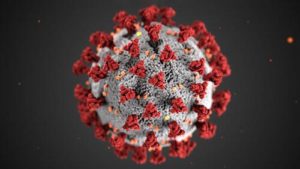 What’s that saying about March – in like a lamb out like lion or vice versa. We have always associated that saying with the weather but now I am beginning to think COVID-19 is following this model. It started slow and as March is coming to end this virus is beginning to roar. For us in pest management this has been an odd time, do you service accounts when we are trying to practice social distancing (I prefer physical distancing)? What is considered essential services when it comes to pest control? How about your school district is it completely shut down, meaning that no one is watching your IPM program? It’s still spring in TX, depending on where you are at you are seeing mosquitoes, fire ants, nuisance ants, millipedes, crane flies, and rodents to name a few of the more annoying pests in our state.
What’s that saying about March – in like a lamb out like lion or vice versa. We have always associated that saying with the weather but now I am beginning to think COVID-19 is following this model. It started slow and as March is coming to end this virus is beginning to roar. For us in pest management this has been an odd time, do you service accounts when we are trying to practice social distancing (I prefer physical distancing)? What is considered essential services when it comes to pest control? How about your school district is it completely shut down, meaning that no one is watching your IPM program? It’s still spring in TX, depending on where you are at you are seeing mosquitoes, fire ants, nuisance ants, millipedes, crane flies, and rodents to name a few of the more annoying pests in our state.
In this edition of School Pest News (SPN) I am going to try and breakdown what you need to have and what you need to know to help you get through this uncertain time.
Several Extension Specialists from across the country came together this month to help those who work with multi-housing clients. This dialogue began has as a discussion to help someone answer the question as to what you consider an essential pest problem. This is what we determined for those of you who live in multi-family housing or service those accounts. {Be on the lookout for a blog by Dr. Merchant for all pest management professionals on this topic soon.}
- Control of rats in residences (any infestation level), or removal of a bat found in the residence, or common spaces
- Control of fire ants in and around residential areas.
- Common-area pest inspection/treatments in high-rise hallways, maintenance areas, garbage rooms, and garbage chutes; findings of any pests in the hallways should be recorded for later proximate-apartment follow-up. {This will vary depending on location and type of facility}
- Inside the apartment cockroach, bed bug, mouse/rat, or fly treatments for high-level infestations in residences, or lower-level infestations if:
- A resident has a non-COVID-19 medical issue involved, such as asthma (as a result of pandemic response measures, we currently have people spending more time in their home, exposed for longer periods to possible asthmagens and respiratory irritants)
- a resident complains and consents to treatment for priority pests (bed bugs, rodents, cockroaches or other significant public health pests)
Pest control providers can determine what will consider a high-level pest infestation, again calls from customers should not be ignored, but prioritized to limit the customer and pest management professional from unneeded physical contact to prevent COVID from spreading. Consult with your local health department (city/county), Texas Department of Agriculture, Texas Pest Control Association and/or university extension specialists about prioritizing additional pests of public health significance (i.e. filth flies, fleas) that could be problematic in your area. Treatments conducted outdoors for wasps, fire ants, mosquitoes, termites, etc. could continue with proper precautions and should be decided on a case-by-case basis.
 Consider using and sharing this document Pest Control Operations and Social Distancing in Multi-Family Housing During the COVID-19/Coronavirus Outbreak
Consider using and sharing this document Pest Control Operations and Social Distancing in Multi-Family Housing During the COVID-19/Coronavirus Outbreak
In addition, the National Pest Management Association (NPMA) is recommending printing the Department of Homeland Security (DHS) form and printing an essential service work document on company letterhead. Both of which can be downloaded here from their website https://www.pestcontrolcoronavirus.com/government-resources/state-province-level/ for Texans you can visit the TPCA website for updated information. NPMA also hosted a webinar on Performing Pest Management in Challenging Times go check this recording out.
Our friends with the Arizona Community IPM program have been working overtime to help get you additional information on COVID-19 and how to manage this in your school, nursing home, or other sensitive environment. The topic is of course focused on the COVID-19 outbreak, and the safe use of disinfectants and cleaning products. You find their information at this newsletter link Thank you, Dawn, Shaku, Lucy, & Jennifer for providing this information.
Finally, in an effort to assist your educational needs I developed a really short survey to learn what Texas A&M AgriLife Extensions IPM team can do to help you. Follow this survey link to let me know your thoughts.

 .
.